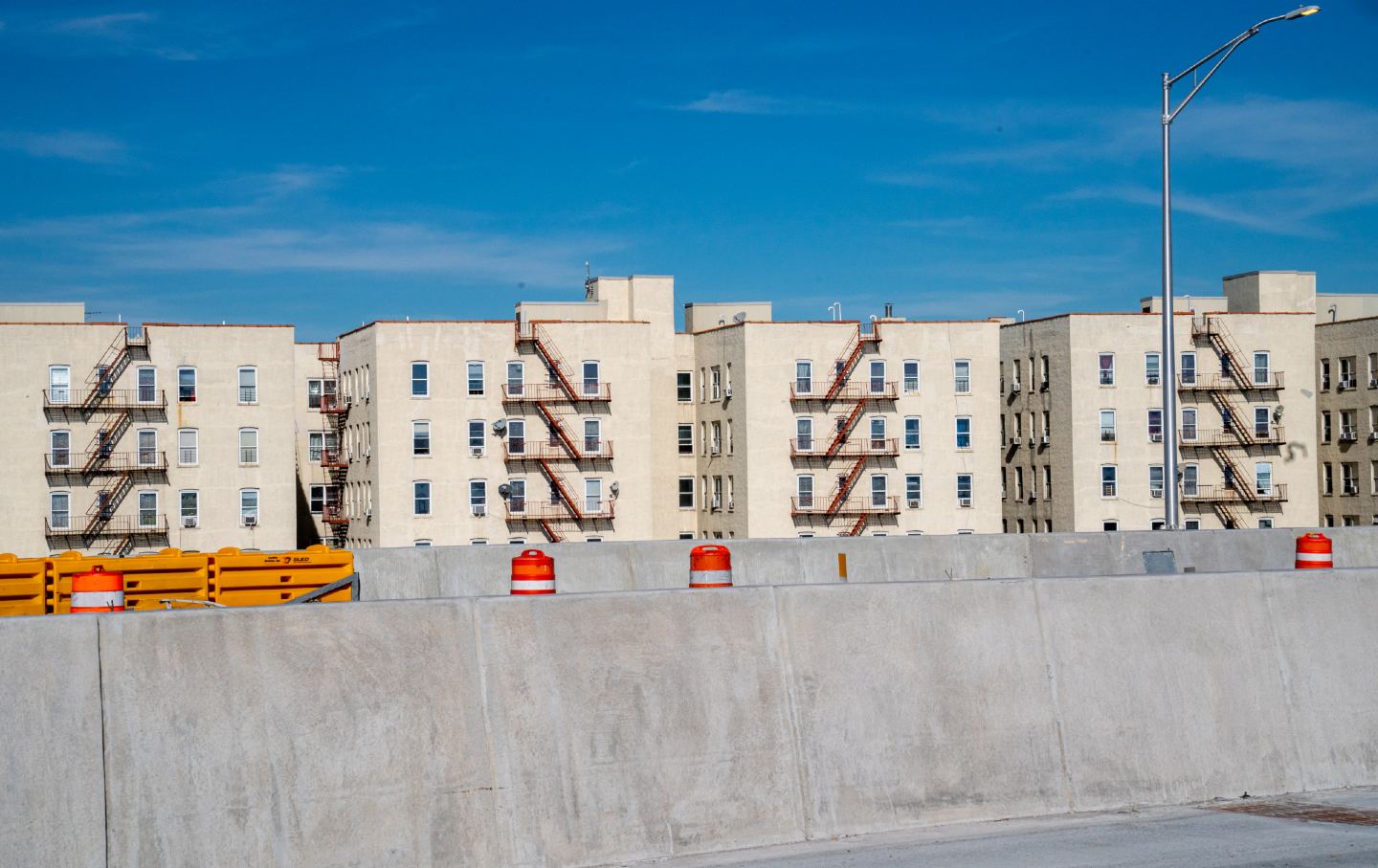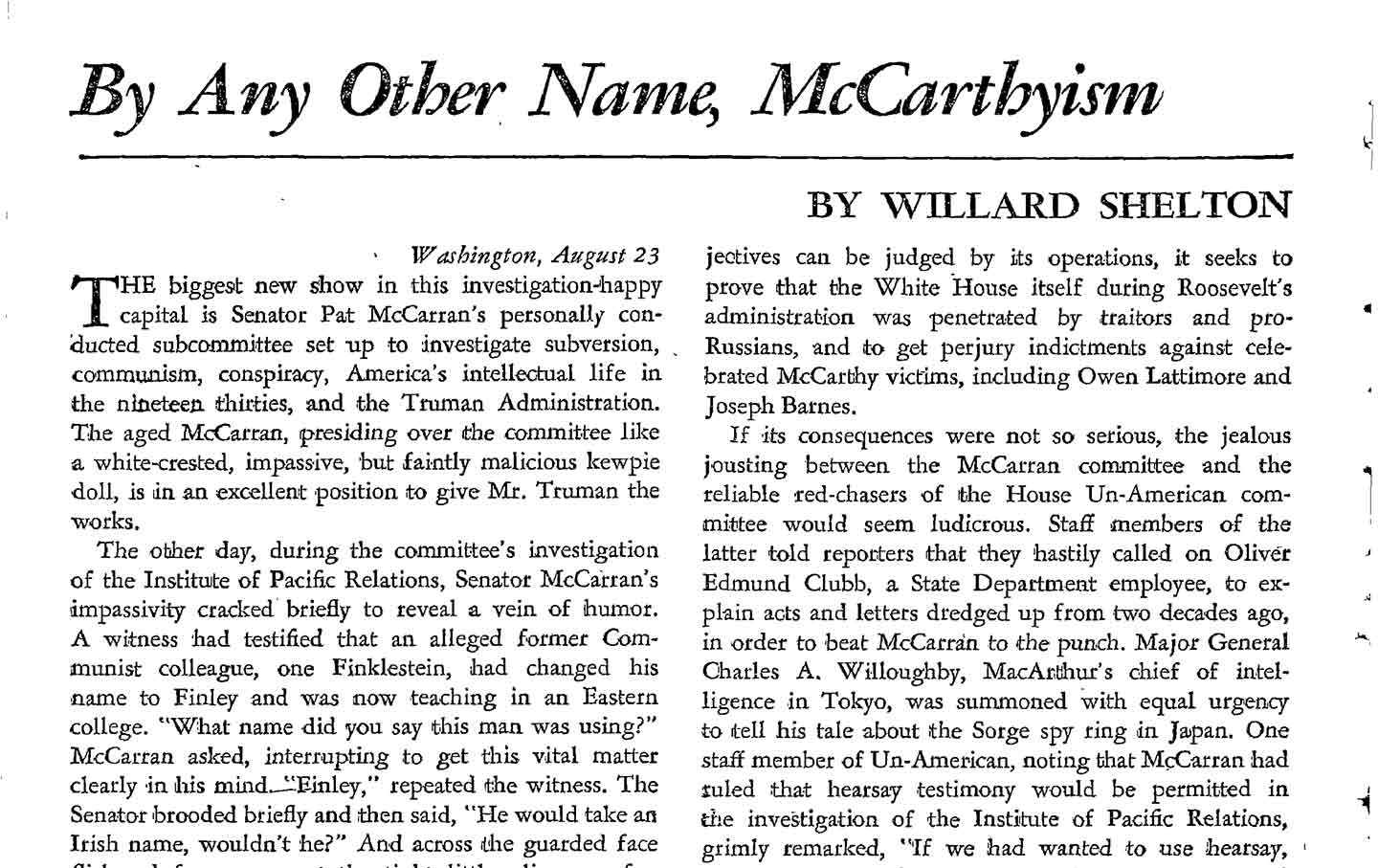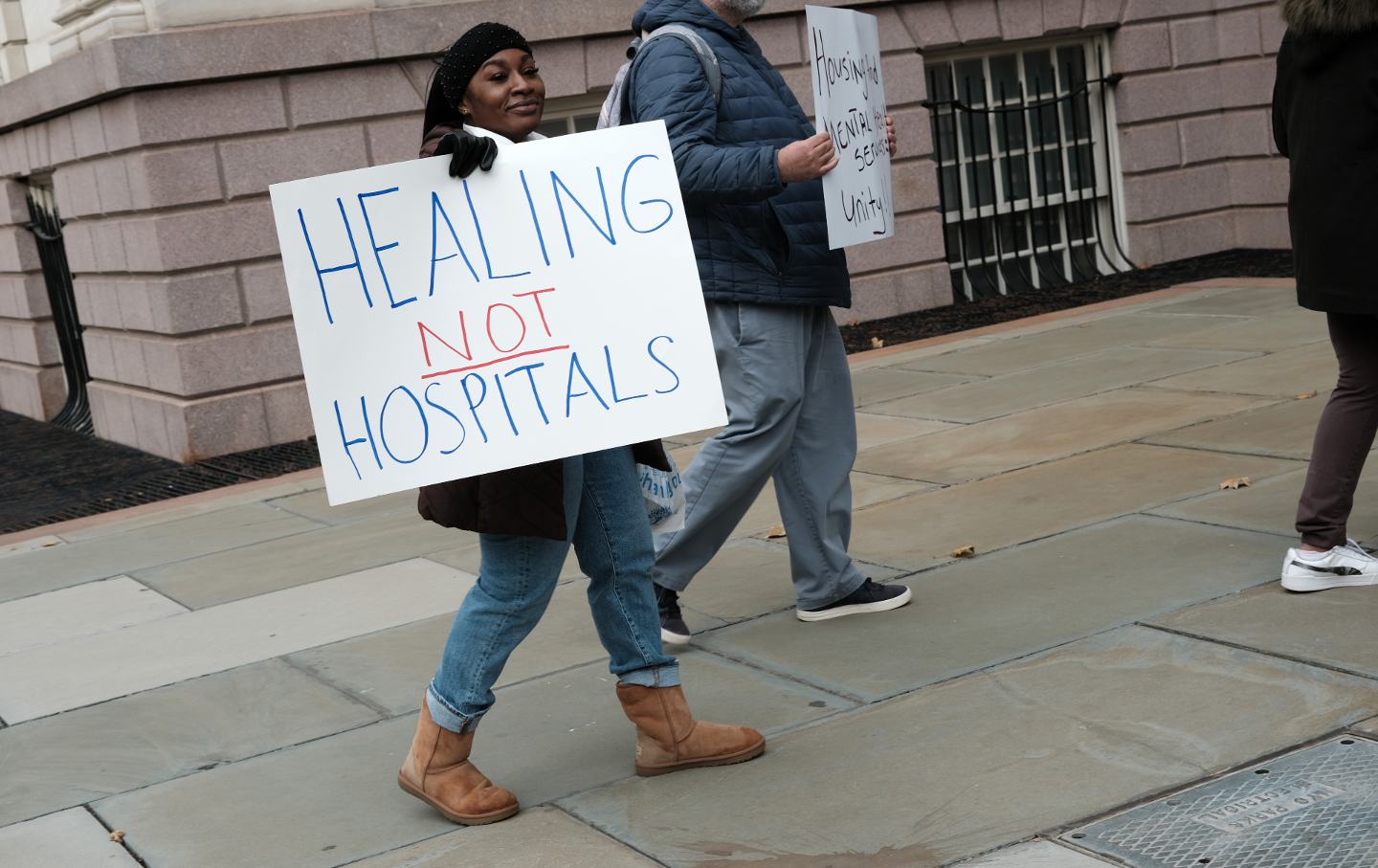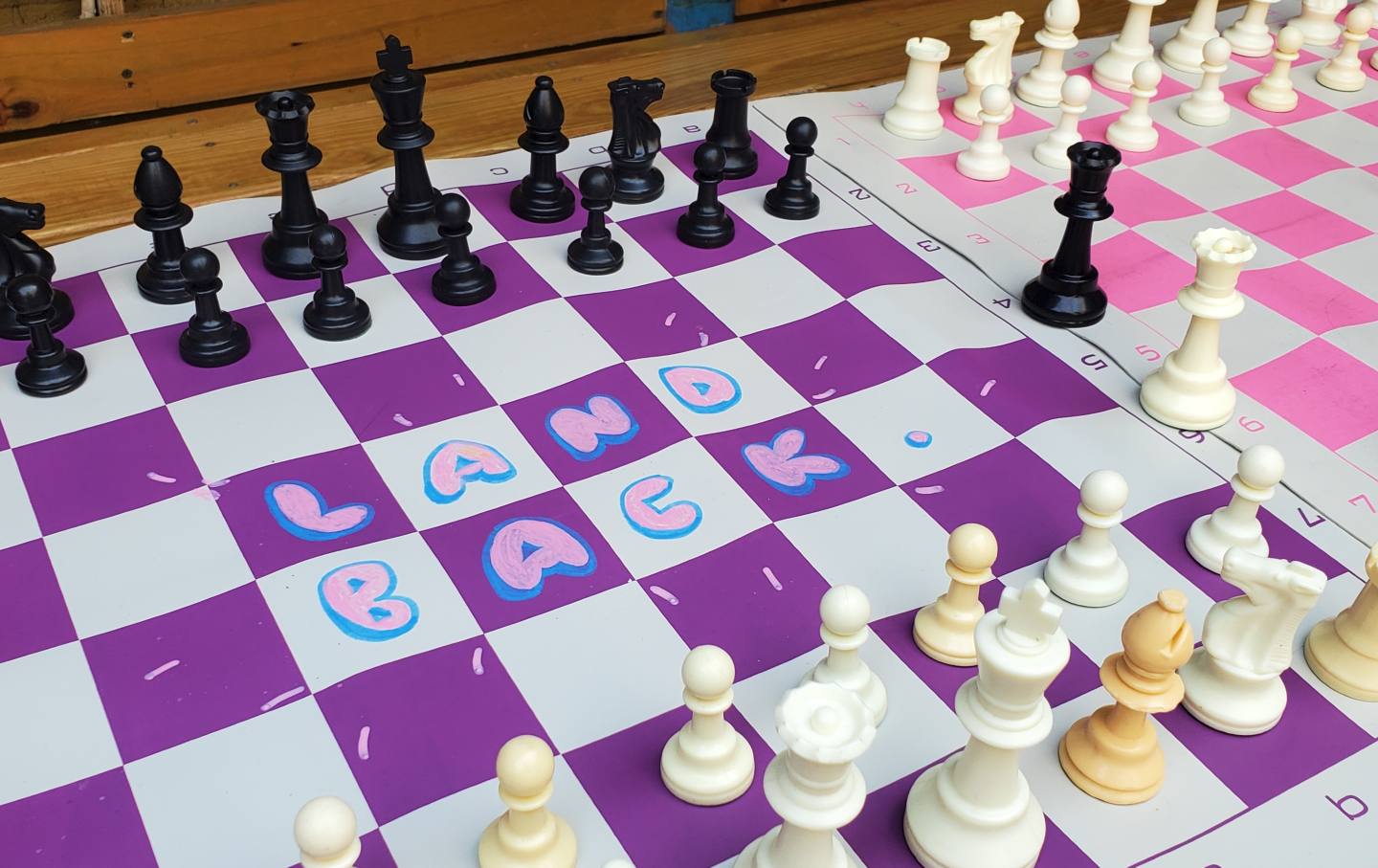In a move that will have major impact in New York, California, and Texas, the two agencies recently agreed to work together in ways that threaten thousands of Americans.

On Tuesday, (May 20) housing justice groups including People’s Action, VOCAL-NY, Texas Organizing Project, Arkansas Community Organization and others rallied in DC—and in more than a dozen communities from Duluth to Akron to Tucson—in defense of federal housing assistance. At a time when close to 800,000 Americans are homeless, Trump’s proposed discretionary budget (as distinct from the reconciliation bill the House of Representatives passed on Wednesday night) includes a whopping 44 percent reduction to HUD spending, including slashing $26 billion from rental assistance programs, the elimination of Community Development Block Grants and deep cuts to a myriad of other HUD initiatives. Amid the deluge of Trump administration chaos, fighting back is imperative, said Sulma Arias, executive director of People’s Action Institute.
“People might feel abandoned by this government and hopeless for any change, but we’re gonna do what our founder, Gale Cincotta, told us to do before she died: we’re gonna get the crooks, the politicians, the corporations, all of them,” Arias said at the DC rally, invoking the working-class Chicago housewife-turned-neighborhood activist whose fight against redlining led to passage of the Community Reinvestment Act. But, she warned, efforts that worked in the past are no longer sufficient.
“The administration is threatening to cut HUD and regional HUD offices,” said Congresswoman Summer Lee (D-PA) who represents the Pittsburgh area. “We are being told that this lifeline, these very basic protections, are on the chopping block so that billionaires can get yet another tax break–so that Trump and his billionaire friends can pretend that they are balancing a budget, while they are evicting our people.”
While the attack on HUD’s budget and an executive order weakening fair housing protections have generated headlines, another provision of Trump’s HUD plans targeting immigrant families has attracted less attention.
In late March, the Department of Housing and Urban Development signed a memorandum of understanding with Kristi Noem’s Department of Homeland Security agreeing to prioritize American citizen families in distributing federally-funded Section 8 vouchers and in public housing more generally. The MOU was barely a page-and-a-half long—and used eye-popping language about working “to identify criminal aliens who prey upon and victimize the American people.” It committed the two agencies to “ending the wasteful misappropriation of taxpayer dollars to benefit illegal aliens instead of assisting American citizens, especially veterans, in need.”
The thing is, undocumented people were already ineligible for federal housing assistance, as Eric Dunn, director of litigation for the National Housing Law Project, explains.
Current Issue

“They are just trying to maximize the amount of fear and uncertainty,” he said. The MOU appears to be the opening salvo in a renewed effort to purge mixed immigration status families from public housing—a move that, amid the larger budget cuts, would have significant financial implications for public housing authorities, particularly in immigrant-rich New York, Texas and California. “This is a win-win for the administration because it harms immigrants and poor people,” Dunn said.
Nationally 9.5 million people live in federally funded housing, either classic public housing developments like New York City’s NYCHA and Chicago’s CHA, or in housing covered by Section 8—privately owned buildings where a portion of the rent is paid by federal vouchers or other formats. Rental subsidies are calculated based on the tenant paying 30 percent of their income towards rent. Subsidies fill the gap between that number and the actual rent amount. According to HUD estimates, of those 9.5 million tenants, 25,000 families—or 108,000 people—are mixed status, meaning some members of the family are citizens or legal permanent residents and some aren’t. But only the US citizens or people with legal status in a family receive rental assistance. The subsidy is pro-rated if some members of the family are not eligible—meaning families that include people who cannot receive housing assistance because of their immigration status get less of a subsidy. That is to say, mixed status families pay more of their family income toward rent. For example a family earning $7,700 a year with three citizens and one undocumented member in an apartment with a rent of $2,237 gets a subsidy of $1,560, while a family of four citizens would get $2,080, according to calculations prepared by HACLA, the Los Angeles housing authority. Far from soaking up resources intended for US citizens, families with undocumented members subsidize American citizens.
But if those families were barred from housing, the effect would be a loss of between $179 million and $210 million in payments from HUD to local housing authorities, according to the government’s own regulatory impact analysis prepared in 2019 when the first Trump administration tried to bar mixed status families. Between the loss of subsidies and the $195 million HUD estimates these families pay in rent, housing authorities could lose as much as $405 million each year. Immigrant families tend to pay higher rents, HUD’s impact analysis found.
From a population of 9.5 million, 108,000 people might not seem like much, but in cities already buckling under extreme housing shortages and ballooning homelessness, it’s a significant number. And given the country’s demographics both of public housing and immigrants, the impact would be concentrated in a few, already grossly underfunded housing authorities. Seventy-two percent of the mixed status families in federally funded housing are in Texas, California or New York, according to the 2019 HUD analysis.
“The federal government is looking for any excuse to cut the little bit of federal housing funding there is in order to cut taxes for billionaires and CEOs,” said Arias, of People’s Action, a national coalition of 38 organizing groups across 29 states. “We have already seen mass firings at HUD, the elimination of the office devoted to advancing homeless solutions, the elimination of the office devoted to fair housing, in addition to this MOU between HUD and Homeland Security.”
In response to the 2019 plan to bar mixed status families, People’s Action marshalled a whopping 30,000 public comments on the proposed rule change, effectively blocking the policy until the end of the Trump term. But this time they anticipate an emboldened Trump 2.0 won’t bother with the procedural niceties of a rule change proposal and public comment period.
Popular
“swipe left below to view more authors”Swipe →
Across various agencies, the Trump administration has repeatedly appealed for emergency powers, allowing an end run around public review, Dunn of the National Housing Law Project said. “You don’t want people forgoing their rights out of fear. But we need to recognize that these are utterly lawless people.”
Juanita Lewis, executive director of Community Voices Heard, which organizes tenants in New York City Housing Authority (NYCHA) buildings and other neighborhoods, thinks the effort to bar mixed status families is simply a back door attack on public housing itself. “There’s this belief that this is fraud, because they distrust any public benefit at all,” she said. “There are all these different mechanisms they use to get rid of people, a narrative of who does and doesn’t deserve housing and the narrative of the takers. The ultra wealthy with their tax cuts, they are the takers!” She sees in the Trump administration’s efforts to defund HUD and curtail eligibility a deeper motive, akin to urban renewal’s removal of poor people and communities of color from land deemed too valuable for them. “[Trump allies are saying:] ‘We want the land. We want to find ways to get rid of these people.’”
Maria and her husband, who asked that her last name not be used for fear of being targeted by ICE, raised their three daughters in Los Angeles public housing because it was a stable, reliable place to live. A house cleaner and laborer, the couple arrived from Mexico three decades ago and joined People Organized for Westside Renewal (POWER) during the Covid pandemic. “I got involved with POWER because I wanted to help the community, help people who needed it,” said Maria, who also volunteers at a food bank. The family receives rental subsidies only for their American-born daughters—so they pay close to market rents, but being in public housing has allowed them to put down roots. If the parents were barred from living in the apartment, they’d have to leave, Maria explained. If, as Noem’s plan intends, an all-citizen family took their place, each member of that family would be eligible for rental subsidies – they’d cost more to HUD and they’d pay less rent to the Housing Authority of the City of Los Angeles (HACLA).
“We’re the ones who pay the highest rents. I hate to say it like this, but if you balance it out, we are the people who pay the rent for the ones who make no income,” Maria said. “We pay taxes. We pay for private insurance. We don’t get anything for free.”
Mixed status immigrant families make up 18 percent of HACLA, according to Ben Cohen, tenant organizer at POWER. “Without this subsidy from undocumented families, HUCLA would not be able to operate,” he said. Immigrant families are also the backbone of local organizing groups, often bringing expertise from political involvement in their home countries to activism here, he said. “Immigrants run the work. They are the member leaders. They are the ones showing up to every meeting and bringing others to the meetings. These are the strongest advocates for poor and working-class families, the most dedicated and supportive.” POWER and People’s Action affiliates around the country have begun establishing mutual aid networks and Know Your Rights trainings to support immigrant families.
US Representative Ritchie Torres (D-Bronx) grew up in NYCHA’s Throggs Neck Houses and sits on the House Financial Services Committee. He sees the MOU and the likely rule change as an attack on public housing writ large—part of a Republican strategy that reaches back as far as the Reagan era.
“Instead of fixing the broken boilers and elevators, the broken roofs and bricks of public housing, [Trump is] intent on breaking the families of public housing,” Torres said. “There’s just no public good that comes from breaking up families. You are simply destabilizing the families of American citizens.” Mandating which family members can live together strikes Torres as counter to Republicans’ allergy to big government. “What can be more intrusive than dictating to Americans which family members can and cannot live in their homes?”
Torres says congressional Democrats are ready to fight to defend public housing—and he’s ready to grill HUD Secretary Scott Turner—when he comes before the Financial Services committee. But Torres said it is taking “a strangely long time” to schedule an appearance by Turner.
Maria says she understands the Trump administration’s instinct. It seems like there isn’t enough money to go around, and they want to preserve services for US citizens. “The coffers are running empty, so many things are being cut,” she said. But Maria sees an alternative solution. “Let the people work. Let them come and they’ll work and you’ll see a difference, you’ll see how much money we’ll bring in.”
More from The Nation

From the moment the McCarran-Walter Act was passed in 1952, The Nation has sounded the alarm about the danger it posed to politically active immigrants.
Richard Kreitner

If you need to see the 2026 World Cup in person, stick to Canada and Mexico. The US isn’t safe for visitors.
Jules Boykoff and Dave Zirin

There is surprising agreement among people with divergent political beliefs that it’s time to expand services for those who are struggling.
Mattea Kramer and Dr. Sean Fogler

The “queerest anti-imperialist chess club on earth” is using chess to build a community and provide an entry way into radical politics.
Alexandra Adelina Nita

And that reality has caused the president of the United States to lose it.
John Nichols

Felecia Phillips Ollie DD (h.c.) is the inspiring leader and founder of The Equality Network LLC (TEN). With a background in coaching, travel, and a career in news, Felecia brings a unique perspective to promoting diversity and inclusion. Holding a Bachelor’s Degree in English/Communications, she is passionate about creating a more inclusive future. From graduating from Mississippi Valley State University to leading initiatives like the Washington State Department of Ecology’s Equal Employment Opportunity Program, Felecia is dedicated to making a positive impact. Join her journey on our blog as she shares insights and leads the charge for equity through The Equality Network.




